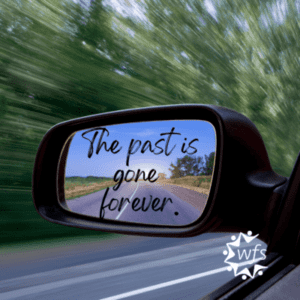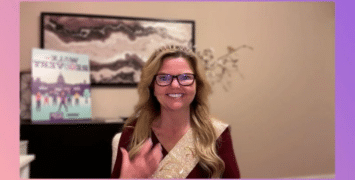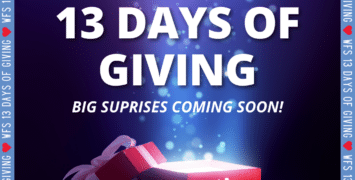Your cart is currently empty!

Monday Thoughts 5.23.22

“Fall seven times, stand up eight.”
Japanese Proverb
“You may encounter many defeats, but you must not be defeated. In fact, it may be necessary to encounter the defeats, so you can know who you are, what you can rise from, how you can still come out of it.”
Maya Angelou
“Recovery is not a race. You don’t have to feel guilty if it takes you longer than you thought it would.” Unknown
Grief was one of the most difficult feelings for me to understand in sobriety and recovery. In fact, grief was the biggest thing that drove my need to escape. I had no clue how to process this intense emotion and carrying a lengthy list of painful moments slowed life down to a standstill. Yet, through WFS and action into Statement #9, I am a victor and not a victim.
I felt well versed in grief, having taken courses in it, and knew the 5 Stages from Elizabeth Kübler-Ross, but when it overwhelmed my life, I was lost like a ball in weeds. Not knowing how to put it into practice only intensified the discomfort and isolation eased in. The smaller my world came, the bigger my addiction grew. Even though sadness and uncertainty ruled, I needed something different. I stood up to my fears and past.
Statement #9 is freeing for many women, and I felt it gave permission to let go. When I examined past situations or thoughts, I saw that replaying the same story kept me stuck. I didn’t realize I was clinging but when I chose to clean the slate so to speak, something shifted. I began to define myself with a fresh set of sober eyes (and brain). A portal for insight was opened and Statement #9 became my daily go-to phrase. Guilt, shame, and fear didn’t stand a chance against my growing voice and today I feel better equipped to manage intense feelings.
Here are 4 ways to add practice to Statement #9:
1. Ask yourself how the past is impacting your life today: What habits or thought patterns are driving you? What/why are you clinging to? Is it positive or negative? These answers may take time to learn and understand and can change over time.
2. Your feelings are valid, practice self-compassion: Give yourself time and space, if need be, yet set a deadline. You may need more information to process something, giving yourself one month or six months can ensure you focus here and now while working towards a healing goal.
3. It’s ok to forgive, including yourself: No one is perfect. Forgiving does not erase or change what happened. In fact, there is a practice in Japan called, Kintsugi, which is the repairing of broken pottery with gold. Or a metaphor for embracing flaws and imperfections. You can heal with effort and awareness which adds incredible value and beauty.
4. Responsibility for yesterday and tomorrow: This is NOT self-blame, rather, it is understanding your role in the moment. Acknowledging and owning past actions, allows a chapter to be closed and helplessness to fade away. This constructs the ability for future growth and 4C development.
Hugzzz
Karen
Hi 4C Women,
Forgiveness was possibly the most difficult feeling to work through. Once I understood that forgiveness was to heal me, and give my time and energy to the healing changes of my personal and emotional growth, I felt the most empowering feeling of all – freedom! It took a bit of research to understand what forgiveness is not and that was a tremendous help.
Forgiveness is not the same as reconciliation
Forgiveness is not forgetting
Forgiveness is not condoning or excusing
You may need to forgive the same person more than once
Forgiveness is not always justice if serious harm has been done without consequences. Again, it is giving peace to yourself.
Forgiveness is a powerful choice you can make when it’s right for you that can lead to greater well-being and relationships (especially the one you have with yourself).
While it was difficult to accept my role in past behaviors, I began to understand that it was part of making important emotional, behavioral, and spiritual changes to create a New Life. As Dr. Phil says, we can’t change what we don’t acknowledge. That acknowledgment took me out of the blame game and empowering changes began to happen. I learned what I needed to work on, to heal so I would take both responsibility for my reactions/responses in the past and, importantly, in the present. I was and am in charge of my choices and my responses. Again, empowering freedom.
Another change that I have become more aware of as each year passes is focusing on the positive past. I believe that sharing our positives at the meetings as it relates to one of the Statements, has provided that awareness that I previously ignored. Recalling and focusing on the negative past was so easy yet it left me stuck, hating myself with each recollection. The best gift of recalling the positive past is that I greatly reduced that hurtful, harmful feeling of shame and guilt. While I get melancholy when reflecting on the wonderful memories of the past and miss those times, I have learned to turn that feeling into gratefulness. While much has changed in the past 34 sober years, my gratitude for experiencing healthy friendships, new adventures, learning to be spontaneous (a huge change for me), finding and speaking my voice, acknowledging my achievements with pride, expressing my feelings through writing, creating conference workshops with Nina, admiring the courageous women I have met through WFS, making authentic life changes, all bring a smile to my face.
My life has changed a lot as it has for many yet I cherish the ability to view it with gratitude, natural sadness at times, and best of all, the major reduction of shame and guilt which never served me well. Of course, there is the guilt that is a life lesson when it teaches us what not to do or say that is hurtful or harmful to others and ourselves. The other guilt, which I call useless guilt, is when it hampers or holds us back in forgiving ourselves and moving forward with love and compassion. We cannot change what has happened but we can change how we view it and no longer victimize ourselves by what cannot be changed. The important thing is to learn, change our inside self-talk, and most of all, change our behavior and responses. This is the best outcome of practicing Statement #9.
I encourage you to think about what you have learned from exploring your past.
Have you learned forgiveness for yourself and others?
Can you reflect on your positive past and feel grateful for the experiences? What are those grateful moments?
In accepting your feelings, and reactions to exploring the past, can you remember what Karen shared – that your feelings are valid? How does that feel to say it, to believe it?
Bond in forgiving, healing, and learning from the past to no longer be victimized but become a new woman, a 4C Woman, Dee
Open your invitation and take a look at the Blooming Sale Catalog and register to be ready to purchase or bid June 10-11! The catalog at womenforsobriety.org/




